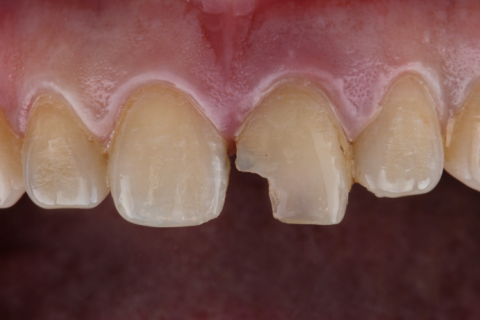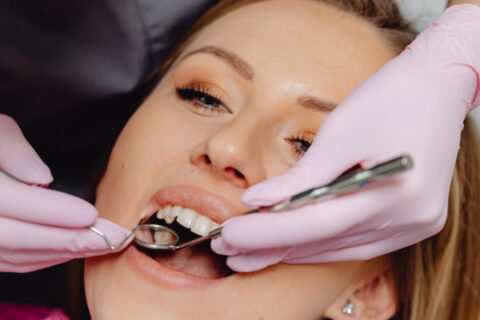How to Fix a Broken Tooth: Your Complete Guide
A broken tooth can take you by surprise — from crunching into a piece of hard candy to getting injured during sports or slipping on the pavement. No matter how it happens, timely and expert care is crucial. At McKinley Family Dental in Mishawaka, IN, we focus on restoring damaged teeth with precision and compassion. Let’s explore what steps to take if your tooth breaks and what solutions are available to help restore both function and your smile.
Recognizing the Type and Severity of Tooth Damage
Not all broken teeth are created equal. The type of break affects both the urgency and the method of treatment. A chipped tooth may only affect the enamel and typically poses more of a cosmetic issue. Cracks can be surface-level or run deeper into the tooth, potentially exposing the pulp and causing sensitivity or pain.
Fractured cusps often affect the chewing surface and might not reach the nerve, while split teeth usually involve a more severe break that can extend below the gum line. Vertical root fractures start in the root and work their way up — these are often hard to detect and may not be noticed until infection sets in.
The sooner a dentist evaluates the break, the better the outcome. Waiting too long can allow bacteria to enter, complicating what may have been a simple fix.
Treatment Options: How Dentists Repair Broken Teeth
Repairing a broken tooth begins with a thorough exam, often supported by X-rays to assess the full extent of the damage. Minor chips can usually be addressed with dental bonding, a quick process where tooth-colored resin is shaped and hardened to restore your tooth’s original appearance.
For larger breaks, your dentist might recommend a crown — a custom-made covering that restores structure and strength. If the pulp (the inner part of the tooth) is exposed or infected, root canal therapy may be necessary before placing a crown. In cases where the damage is too severe to save the tooth, extraction followed by a bridge or dental implant may be advised. If an extraction is necessary, your dentist may also recommend a bone graft to help preserve the socket and support future tooth replacement.
Every treatment plan is carefully tailored to preserve your natural tooth whenever possible.
Fixing Cracks and Fractures: What You Should Know
Yes, a dentist can fix a cracked tooth — but timing matters. Some cracks are purely cosmetic and can be polished or bonded. Others, especially those that run into the pulp, may require more involved care like crowns or root canal therapy. Cracks that extend below the gumline or affect the root might call for surgical intervention or even tooth removal.
At McKinley Family Dental, we use advanced diagnostic tools to determine the best course of action and minimize discomfort while maximizing your tooth’s longevity.
Front Teeth and Small Chips: Aesthetic and Functional Solutions
Chipped and broken front teeth are especially sensitive because they affect both appearance and speech. Fortunately, cosmetic bonding, veneers, or tooth-colored crowns can restore your smile seamlessly. For small chips, a bit of smoothing or a filling may be all that’s needed.
These types of repairs aren’t just cosmetic — fixing a chipped tooth early can help prevent further wear, sensitivity, or infection.
Aftercare and Long-Term Health of Your Repaired Tooth
Once your tooth is repaired, proper care is essential. Avoid hard or sticky foods, especially in the days following your procedure. Brush gently using a soft-bristled toothbrush, and consider a mouthguard if you grind your teeth at night. Regular dental checkups every six months will help ensure that your repaired tooth — and the rest of your mouth — stays in top shape.
Your dentist will provide personalized instructions to support healing and protect your dental work. With the right aftercare, most tooth repairs can last many years.
Frequently Asked Questions (FAQ)
-
Can a broken tooth be fixed permanently?
Yes, depending on the severity and location, broken teeth can often be repaired permanently with crowns, bonding, or root canals. The longevity of the repair depends on aftercare and the type of treatment.
-
What should I do immediately after breaking a tooth?
Rinse your mouth with warm water, apply a cold compress to reduce swelling, and contact your dentist as soon as possible. If you have the broken piece, store it in milk or saliva and bring it with you.
-
Is it painful to repair a broken tooth?
Most procedures are done under local anesthesia and are relatively pain-free. Discomfort, if any, is usually minimal and temporary.
-
How long does it take to fix a broken tooth?
Minor repairs like bonding can be done in a single visit. Crowns and root canals may require multiple appointments over one to two weeks.
-
What happens if I don’t fix a cracked or broken tooth?
Delaying treatment can lead to infection, worsening damage, and even tooth loss. Prompt care improves your chances of saving the tooth and avoiding more complex procedures.


